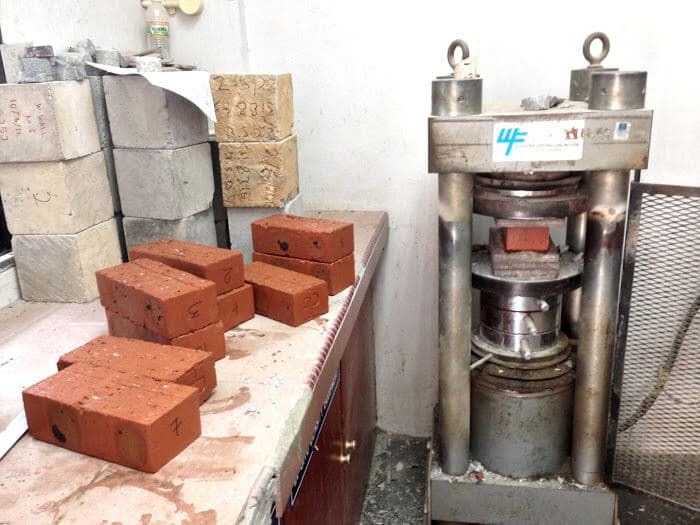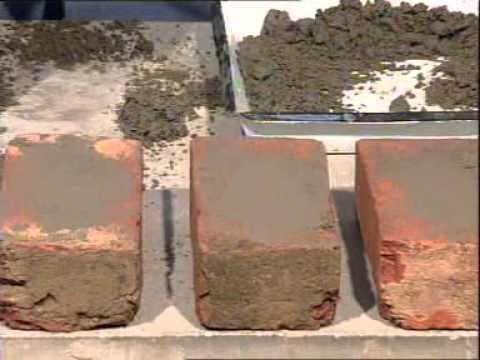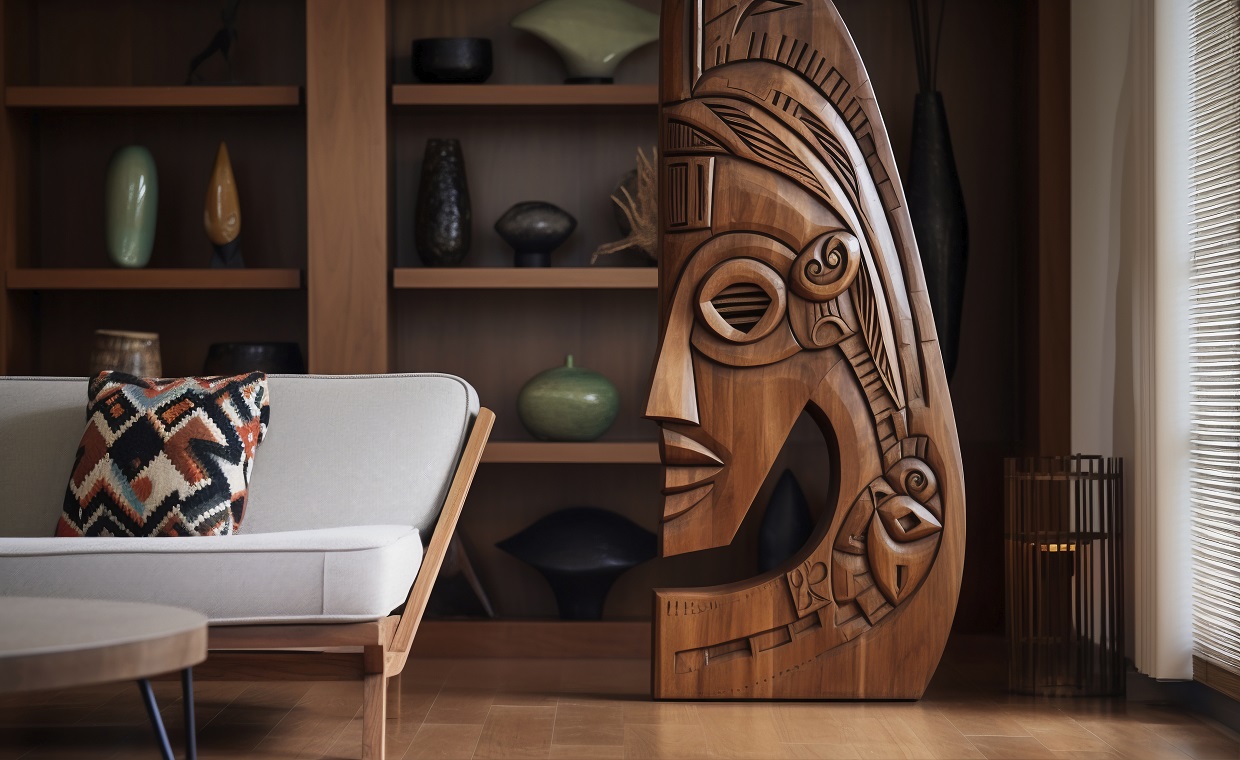
Basic of Compressive Strength of Brick
The compressive strength of the brick is the most important property of the bricks because brick is mostly subjected to compression and hardly to tension. Bricks are used both for load-bearing structures and non-load bearing structures. Bricks basically used for masonry construction and also used for the construction of brick floors, arches, cornices etc.
Why Compressive Strength of Brick is Important
The compressive strength of brick is essential for confirming that any particular brick will be able to withstand the certain load or not. Because it affects the quality, durability and serviceability of overall structure.

Compressive Strength of Brick
Standard Guidelines for Testing of Compressive Strength of Brick
- IS 3495 (Part 1) 1992
- ASTM C 67
- BS 3921:1985
Compressive Strength Test of Brick as per IS 3495 (Part 1) 1992
Apparatus:
01. Compression Testing Machine or Universal Testing Machine
02. Weight balance
03. Gauging Trowel
04. Tray
Procedure
Preparation of Test Specimens:
- Take any five random bricks from the lot as a specimen. Remove unevenness noticed in the bed faces to provide two smooth and parallel faces.
- Immerse that sample in water for 24 hours at room temperature. After 24 hours remove the specimen from the water and drain out any surplus moisture.
- Fill the frog (where provided) and all voids with 1:1 cement mortar (1-part of cement and 1-part of clean coarse sand of grade 3 mm and down).
- For the setting of mortar store these bricks (specimens) under the damp jute bags for 24 hours. Then immerse the specimens for 3 days.

Preparation of Test Specimens
Testing
- Remove the bricks from the water and allow the water to drain till its surface dry, then test each brick individually for compressive strength.
- Place the specimen between the two plywood sheets in such a way that the flat face of the specimen is on the horizontal and mortar-filled face is in the upward direction. Take plywood sheets of 3 mm thickness.
- Carefully place the whole assembly (specimen and plywood sheets) at the center between the plates of the compression testing machine.
- Apply axially and uniformly loading at the rate of 14 N/mm2 (140 kg/cm2) per minute till failure occurs.
Points to be Taken Care
- Instead of plywood sheets, plaster of Paris may be used to ensure a uniform surface for application of load.
- Edges of the specimen must be straight and sharp.
Result
- Note down the load at which the failure occurs.
- Compressive strength of the bricks (Co) shall be calculated by division of the maximum load (P) applied to the bricks during the test by the cross-sectional area (A).
- Compressive strength of bricks = P/A
Acceptance Criteria
Recommended result for various types of bricks to their compressive strength are as follows:
- For first class bricks, strength should not less than 10 N/mm2 (102 kg/cm2).
- For second class bricks, strength should not less than 7 N/mm2 (71 kg/cm2).
- For third class bricks, strength should not less than 3.5 N/mm2 (36 kg/cm2).
What should you do when Result is not in Range of Acceptance Criteria?
If the test result is not as per acceptance criteria, there can be many reasons behind it such as the error in – clay composition, testing appliance and testing procedure, degree of burning like over or insufficient burning etc.
If bricks fail in strength as per recommendation you can’t use it as a load-bearing component. You can consult your brick supplier or brick manufacturer for replacing it. Also, you consult your engineer whether you can use it as non-load bearing components like a partition wall or use as the filling material where the hard surface is needed, i.e. flooring work etc.
Quantity Needed for Test
Nos of bricks sample needed to test the brick are as follows:
- Lot Size of 2001 to 10000 bricks – 05 Nos bricks
- Lot Size of 10001 to 35000 bricks – 10 Nos bricks
- Lot Size of 35001 to 50000 bricks – 15 Nos bricks
- If the lot size of brick contains 2000 or less bricks, ask your engineer for the required test samples.
Cost of Test
Cost of compressive strength of brick test is around Rs. 200 to 600. Price may generally change according to various factors, i.e. area where a test is conducted, numbers of the testing, relation with the client, the urgency of test results etc.
Frequency of Test
Compressive strength of brick test is conducted at the use of every 50000 bricks or when the class of brick, type of brick and the source of brick are changed.
Also Read
Your Mentor to Guide You to Buy Bricks
The Shocking Truth about Life of AAC Blocks vs Red Bricks!
AAC Blocks Vs Red Bricks: How to Make the Right Choice
Image Courtesy: Image1
































